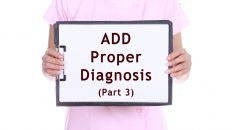By Jerry Morris, PsyD, MsPharm, MBA
MB (Marc Braman, MD, MPH):
Well, and we have touched on stress as a huge factor, adverse childhood events, relationships. Stress is obviously huge and there are things we can do to deal with that, both for the individual and for their relationships, their family, and their environment. What about nutrition? Is there any evidence for a role of nutrition?
JM (Jerry Morris, PsyD, MsPharm, MBA):
Sure. We all know that sugar metabolism is one of the great benefits of being a human that’s made us capable of moving ahead of many animals. We also know it’s a double edge sword and it can become one of the great destructive forces if sugar metabolism isn’t adequate. When you look at the human being, nutrition and those things that affect things like sugar metabolism, fat storage, the ability to quiet the endocrine system so that we don’t have neuro hormones like ATCH and some of the adverse neuro hormones that disrupt the system in homoeostasis but also tear up tissues in well balance that we are in trouble and we age faster, we have shorter life span and emotionally our brain deteriorates more rapidly.
JM:
So nutrition is just as important as medication for the early stage, when we have to really quiet someone down with Attention Deficit Disorder rapidly and can’t do that learning and psychotherapy. Nutrition is one of those things that we can change and we have some good science now on knowing how to change it and get it in balance and it can begin to sooth the savage beast and help us will these functions.
MB:
Wow, so what jumped out at me from what you just said was that nutrition is as important as medication.
JM:
There is no question about that. And it is amazing to me, how many of we scientifically trained physicians and psychologists, don’t emphasize this more and we just drop to heavy emphasis on the medications. I will say this though, there are other windows into this house of resilience and recovery that are just as important and exercise is another one that we can talk about that is one of the ways of both soothing the savage beast of generating energy and sleep and affecting the attitude and the personality as much as nutrition, medications and cognitive psychotherapies.
MB:
Wow. So sleep, nutrition, exercise, these different lifestyle factors or forces, are part of causation and potentially part of treatment, should be part of treatment and are as effective as important as medication possibly more so because they are causation. It sounds like we are going to need to dive in to these in some separate sessions going forward.
JM:
Sure. I’d be happy to. They are so important, they are kind of exciting to talk about.
MB:
Excellent. We will look forward to that. Thank you so much Dr. Morris. We will get into those topics in future sessions.
JM:
You’re welcome Marc.
Relationship of Childhood Abuse and Household Dysfunction to Many of the Leading Causes of Death in Adults: The Adverse Childhood Experiences (ACE) Study. Felitti VJ, Anda RF, Nordenberg D, Williamson D, Spitz A, Edwards V, Koss MP, Marks JS (1998). American journal of Preventive Medicine. Vol. 14, Issue 4, p. 245-258.
Exercising Your Brain: A Review of Human Brain Plasticity and Training-Induced Learning. Green, C. S., & Bravelier, D. (2008). Psychology and Aging. Vol. 23, No. 4, 692-701.
Dynamic Remodeling of Dendritic Arbors in GABAergic Interneurons of Adult Visual Cortex. Wei-Chung Allen Lee, Hayden Huang, Guoping Feng, Joshua R. Sanes, Emery N. Brown, Peter T. So, Elly Nedivi (2006). PLos Biol. Volume 4, Issue 2, e29. doi: 10.1371/journal,pbio.0040029.





